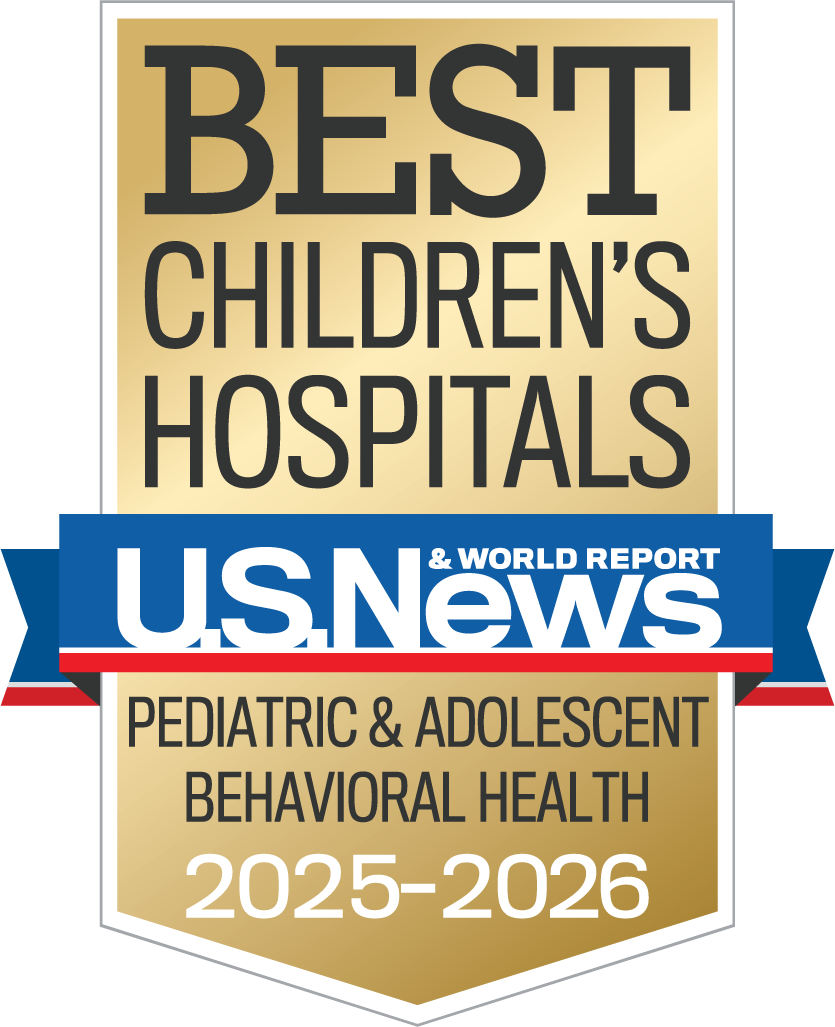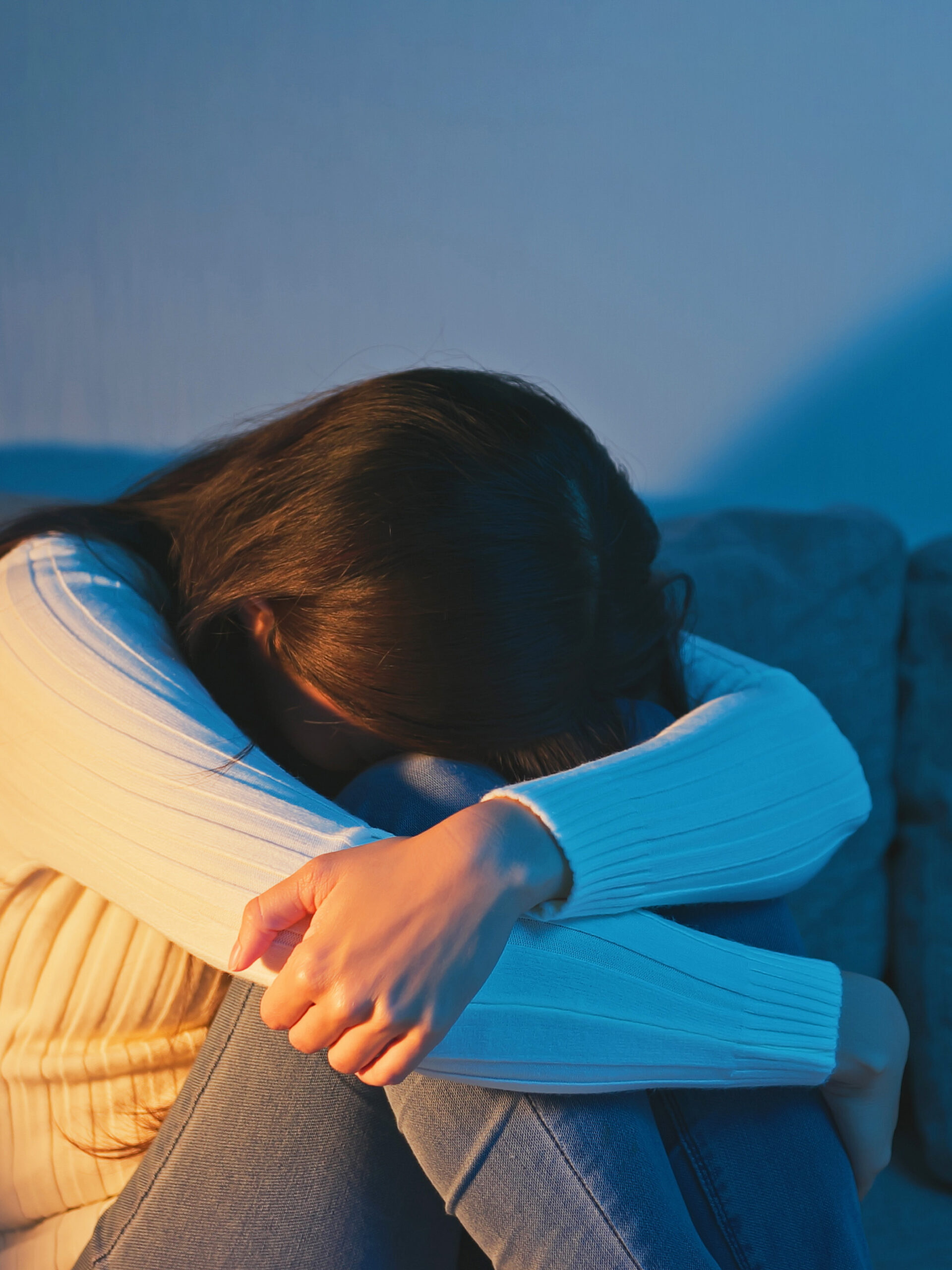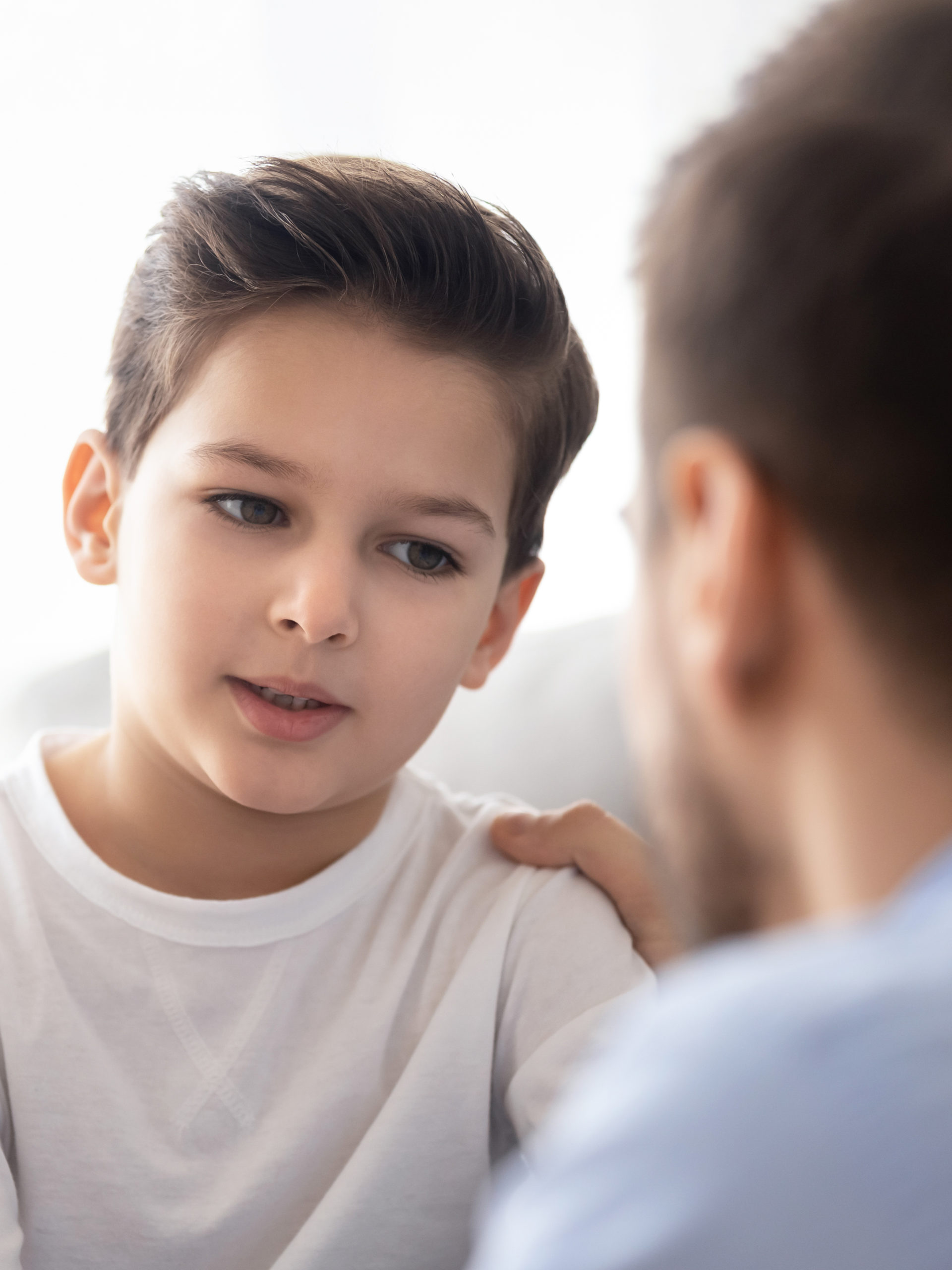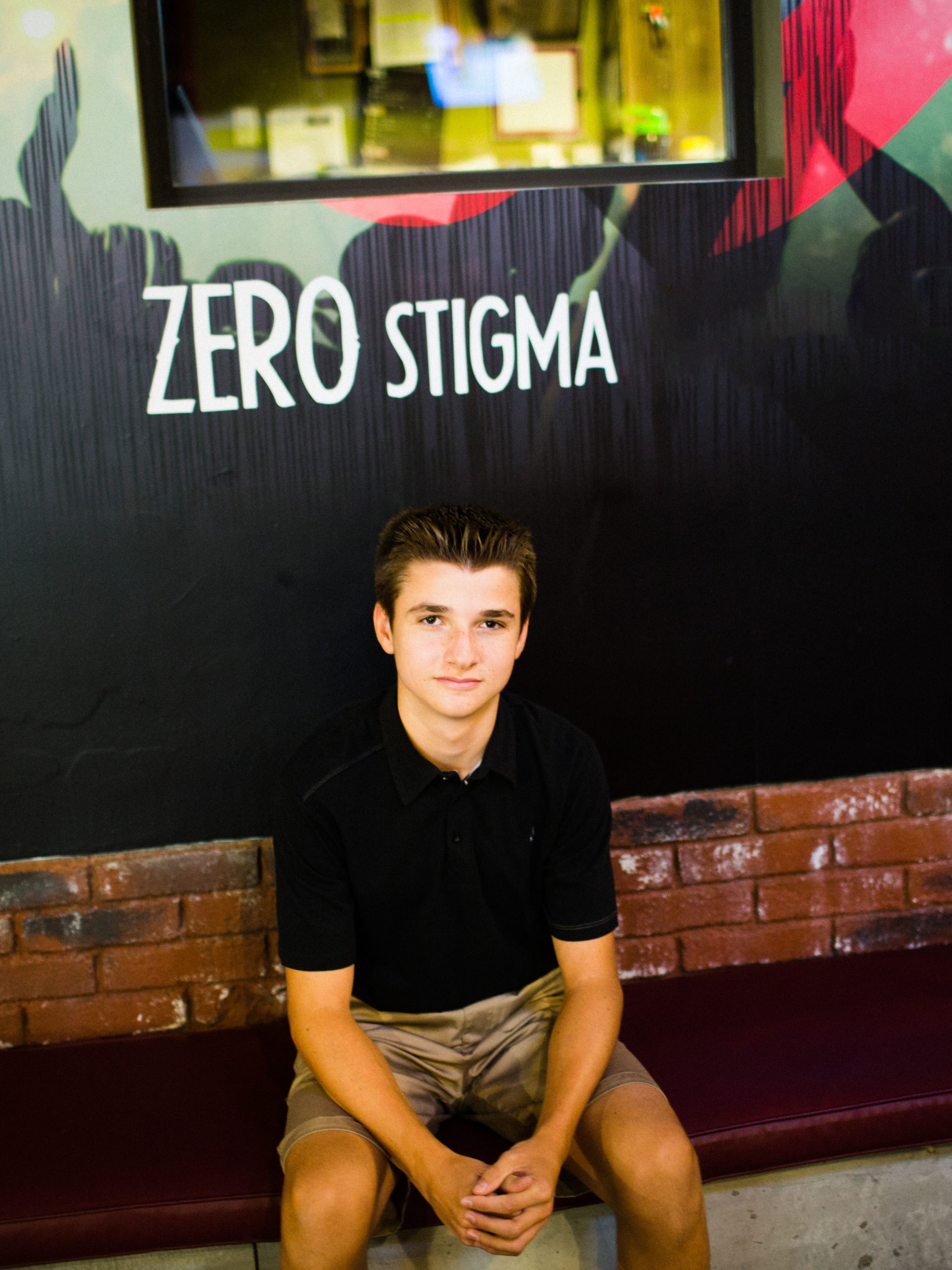MENTAL HEALTH GUIDE
Psychosis
Psychosis is a mental health condition where a person loses touch with reality. This can include seeing or hearing things that other people don’t see or hear. Psychosis can also cause strong beliefs that are not based in reality and are not shared by others. The combination of these experiences can cause severe stress and changes in a person’s behaviors.
Crisis Resources
If your child expresses thoughts of wanting to harm themselves or others,
call 9-1-1 or visit the nearest emergency department.
To reach the Crisis Text Line, text HOME to 741-741 or visit crisistextline.org.
To reach the National Suicide Prevention Lifeline, call 9-8-8 or visit 988lifeline.org.
External resources
National Institute of Mental Health
www.nami.org/earlypsychosis
UCLA’s CAPPS
https://www.cappsucla.org/
UCI’s LEAPs
https://sites.uci.edu/leaps/prevent-lab-studies/
NASMHPD’s Early Intervention in Psychosis Virtual Resource Center
Early Detection and Intervention for the Prevention of Psychosis Program
UC Davis resources
https://health.ucdavis.edu/psychiatry/specialties/edapt/resources.html
On Track NY resources
https://ontrackny.org/Learn-Train/Resources
Learn more about CHOC’s pediatric mental health services
At CHOC, we specialize in providing a full spectrum of pediatric mental healthcare, including inpatient, intensive outpatient and outpatient program services.
Get 24/7 advice from CHOC
Psychosis: An overview
In the United States, 100,000 young people experience psychosis each year. Below we explore psychosis signs and symptoms, causes, treatments and resources for parents, teens and kids.
What is psychosis?
Psychosis refers to several symptoms in which a person has trouble telling the difference between what is real and what is not.
This experience can make it hard to carry out day-to-day activities as someone typically would. A person with psychosis may have trouble thinking clearly, doing well in school or taking care of their personal hygiene. They may want to be alone more than usual or take part in unsafe behaviors (running away, hurting themselves, hurting others).
Psychosis tends to happen in “episodes,” or periods of time when symptoms are present. For some people, an episode lasts for a few days to a few weeks. For others, an episode may last for months or years. Symptoms of psychosis usually get better with the right treatment.
Recovery is possible for anyone experiencing psychosis. Recovery looks different depending on each person’s goals. Some people who experience an episode of psychosis recover and never experience another one. Sometimes psychosis can mean the start of a more serious condition, such as schizophrenia or bipolar disorder, but not always.
Symptoms of psychosis
- Hearing, seeing, tasting or feeling things that are not there
- Extremely unusual thoughts or beliefs that continue even when shown evidence that they might not be true (this may include believing that they have special powers, feeling like their thoughts are not their own or worrying someone is following or out to get them)
- Trouble thinking clearly or concentrating
- Being suspicious of others
- Unusually strong emotions or no emotions at all
- Staying away from or avoiding others
- Decrease in self-care.
What causes psychosis?
There are many different possible causes for experiencing psychotic symptoms. Some of them include:
- A stressful or traumatic event or a major loss
- A diagnosed mental health condition (for example, schizophrenia, schizoaffective disorder, depression, bipolar disorder)
- Using substances (cannabis and other drugs such as mushrooms and LSD increase risk for developing psychosis) or certain medications
- Spiritual experiences
- Physical illness or injury (dementia, epilepsy, multiple sclerosis, stroke and many autoimmune conditions)
- Family history of psychosis
Who experiences psychosis?
In the United States, 100,000 young people experience psychosis each year. Statistics show that three in 100 people will have an episode at some point in their lives. Psychosis often begins when a person is in their late teens to mid-twenties. Psychosis may be temporary, or it may become permanent if not properly treated.
What does treatment look like?
Treatment can look different depending on each person’s needs. In general, people benefit most from two types of treatment: medication and mental health services. For most people, medication can be a helpful part of recovery. Medication can help decrease some of the symptoms of psychosis (hallucinations, paranoia, confusion) and make upsetting experiences more manageable. Medications can help calm and clear confusion within hours or days, but they can take up to four to six weeks to work fully.
The other form of treatment is mental health services, which can involve many professionals (e.g. psychologists, psychiatrists, social workers, therapists or other mental health workers). Mental health treatment focuses on giving education about psychosis, teaching coping skills and helping the person with psychosis move towards the life they want to be living. Some programs also offer peer support services (meeting with a trained person who experiences psychosis and is living in recovery) and support for families or other important adults to teach them communication tools and problem-solving skills.
Early treatment is important and provides the best hope for recovery. Treatment can help slow, stop or reverse the effects of psychosis.
 Print this
Print this

Learn more about CHOC’s Pediatric Mental Health Services
CHOC Hospital was named one of the nation’s best children’s hospitals by U.S. News & World Report in its 2024-25 Best Children’s Hospitals rankings and ranked in the behavioral health specialty.

Tips for parents and caregivers of teens experiencing psychosis
Because psychosis begins when a person is in their late teens to mid-20s, it can be challenging for caregivers and healthcare professionals to know what is going on at first. It can also be difficult to know how to support your child with psychosis. Below are some tips for how you can support your child:
Show your love.
Children need love, empathy and to feel safe. Let them know you care and that their feelings are important. Be present, sit with them and tell them that they are safe.
Reassure your child.
Let your child know you are going to help them feel safe and that therapy, taking part in a daily routine and medications can help. Let them know that what they are feeling (fear, anger, sadness) is a typical response to these experiences, and encourage your child to share what their experience is like. This will help to normalize and validate these feelings.
Help your child distract themselves.
When experiencing psychosis, feeling distressed can make the psychotic symptoms worse. You can help your child manage their stress by taking part in pleasant, distracting activities, like watching a movie together, doing art together, playing a game or doing another favorite activity.
Stick to a routine.
Schedules and routines create a feeling of structure and security. Try to live and act just like usual to help your child feel safe. If you need to, make some changes to your routine to keep things simple and comfortable. It may be helpful to provide visual instructions for your child to remind them to complete daily tasks such as showering and brushing teeth.
Create a safe environment.
Create a safety plan with a professional (therapist, doctor, case worker) and find ways to make your home safer for your child. Ask your child what will help them feel safe and in control.
Reach out to your child’s doctor, therapist or psychiatrist.
Early treatment is important and provides the best hope for recovery. Treatment can slow, stop or reverse the effects of psychosis. Children with psychosis may benefit from therapy/counseling, medications, peer support and other services.
Take care of yourself.
Find time to take care of yourself and take part in meaningful activities. It is easier to be fully there and to support your child if you take care of yourself as well.
 Print this
Print this
Tips for teens and young adults experiencing psychosis
Since psychosis can be confusing and stressful at first, it can be hard to ask for help or look for support. These tips will help you manage the symptoms and stress of psychosis, as well as help you find extra support.
Ground yourself.
Touch your physical surroundings and pay close attention to how they feel (texture, temperature, smells). You can also play a 5-4-3-2-1 game with yourself by naming 5 things you can see, 4 things you can touch/feel, 3 things you can hear, 2 things you can smell and 1 thing you can taste. This can help “ground” you and feel calmer.
Use coping skills to manage distress.
Experiencing psychosis can be scary. Although there is little we can do to make a hallucination go away in the moment, we can use relaxation techniques to reduce stress, which can make the symptoms better. Try taking a few deep breaths, saying some encouraging statements to yourself and asking for a helpful adult to distract you from what you are experiencing.
Take care of yourself.
Things like not getting enough sleep can make symptoms of psychosis worse. Be sure you are getting enough sleep and taking care of your personal hygiene (change clothes every day, brush your teeth and take a shower or bath regularly). If you need help with remembering to do these things, creating visual reminders like signs that you put in key locations around the house can be helpful.
Remember you’re not alone.
These experiences can be frightening and upsetting, AND there are millions of other people out there going through something similar (including famous people!). Keep in mind that even if your loved ones and people in your life are not going through exactly what you are experiencing, they do want to help and support you.
Seek help.
Finding treatment for psychosis can be hard, especially if voices or your feelings might be telling you that it is not safe. It is important to seek treatment and to stick with it, because sometimes it can take a little while to figure out what combination of medications, therapy and other supports are most effective for you.
 Print this
Print this
Learn more about CHOC’s Pediatric Mental Health Services
CHOC Hospital was named one of the nation’s best children’s hospitals by U.S. News & World Report in its 2024-25 Best Children’s Hospitals rankings and ranked in the behavioral health specialty.
Psychosis recommended reading
 Print this section
Print this section
Related guides
Psychosis often occurs with other mental health conditions such as schizophrenia, depression, bipolar disorder, and substance use disorder. For more information on other mental health conditions that can occur co-morbidly with psychosis, please visit our other mental health guides.
Psychosis books
- The First Episode of Psychosis: A Guide for Young People and Their Families, Beth Broussard and Michael T. Compton (Author)
Additional Resources
Featured Resources
The guidance on this page has been clinically reviewed by CHOC pediatric experts.
For more health and wellness resources from the pediatric experts at CHOC:
Sign up for the Kids Health newsletter.
The contents of this webpage, including text, graphics, audio files, and videos (“Materials”), are for your general information only. The Materials are not intended to substitute qualified professional or medical advice, diagnoses, or treatments. CHOC does not recommend or endorse any specific tests, physicians, products, procedures, or other information that may be mentioned on or linked to this webpage. Always call your physician or another qualified health provider if you have any questions or problems. If you think you may have a medical emergency, call your doctor, go to the nearest emergency department, or call 911.
For more health information for your family visit health.choc.org





